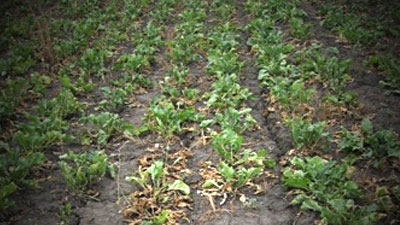![]()
WASHINGTON, April 4, 2013 — A new World Bank book on the impacts of climate change on agriculture in the Europe and Central Asia region indicates that projected changes in temperature and precipitation in Moldova are expected to increase the vulnerability of the country’s agriculture sector and rural population if no action is taken.
The book, Looking Beyond the Horizon: How Climate Change Impacts and Adaptation Responses Will Reshape Agriculture in Eastern Europe and Central Asia, offers new insights and adaptation options for the agricultural sector in Albania, the Former Yugoslav Republic (FYR) of Macedonia, Moldova, and Uzbekistan.
According to the book, temperatures in Moldova are expected to increase by more than 2o Celsius over the next 50 years – well above the increase of less than 0.6o C observed in the country over the last 50 years. Additionally, incidents of extreme heat have been reported by farmers and average annual rainfall is forecast to fall by about 120 mm per year by 2050, with the decline expected to be the highest in the June to September period, which is key for summer crops.
Building on these projections, this book offers impact assessments of climate change for the country. In particular, water resource management implications are of great concern in Moldova, since climate change increases irrigation water demand and decreases overall water supply. In all scenarios, the overall trend is that more water is required to maintain current yields. Specifically, grapes, apples and vegetables will need more water. While only about 10 percent of crops in Moldova are irrigated currently, there are plans to double that proportion, so analyzing water resources is critical.
Along with the forecast for increased water demand from industrial and municipal sectors from overall economic growth, there is also the possibility of water shortages occurring within the next decade.
In order to offset the negative impacts of these projected scenarios and capitalize on the potential opportunities created by climate change, this book offers a menu of adaptation options tailored to provide specific guidance on how Moldova can reduce the vulnerability of its agriculture sector to climate change.
“Farmers are already confronting the impacts of climate change and their livelihoods depend on their ability to match their own efforts to respond to these effects with help from their governments and the private sector,” said William Sutton, an author of the book and a Lead Agriculture Economist at the World Bank. “What this research offers is an approach for examining the potential impacts of climate change on agriculture, and for devising a range of options to help all parties play meaningful roles in adapting to the impacts, and making the most of the opportunities.”
Key recommendations at the national level:
- Improve the education system for farmers and access to it, with a focus on growing drought- and pest-resistant crop varieties;
- Improve the dissemination of hydro-meteorological information to farmers, and
- Investigate options for crop insurance.
Key recommendations at the agro-ecological (AEZ) level:
- Improve crop and livestock varieties;
- Improve irrigation infrastructure and increase basin-wide irrigation efficiency, and
- Promote soil erosion control measures.
“This is about adaption to climate change to minimize the more damaging effects,” said Jitendra Srivastava, co-author of the book and agriculture specialist consultant to the World Bank. “Given the resources and information, farmers can take advantage of longer growing cycles, and plant more resilient crops so they can be confident they can still earn a living.”
“We believe it is urgent and central to understand the scope of climate change, its impacts on agriculture, and the possible responses in this region. This study aims to address these concerns by building awareness about climate change in our client countries and to work with them to offer practical climate smart solutions,” said Dina Umali-Deininger, Agriculture and Rural Development Sector Manager in the World Bank’s Europe and Central Asia Region.
Moldova has already incorporated some of the findings in this study into their disaster mitigation and adaptation project, and more recently, into a new agricultural competitiveness project.
This book is part of the broader climate smart agriculture approach being implemented by the World Bank. This approach emphasizes the need for agricultural practices that can simultaneously increase productivity in today’s climate, build resilience to climate change, and reduce greenhouse gas emissions – contributing to a “triple win” in the agriculture sector and providing sustainable solutions to the challenges posed by a shifting global climate.


